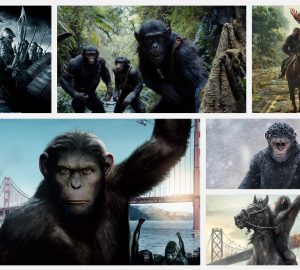By Julie Tran
With the summer vacation and the prospects of going back to Vietnam approaching, I find myself daydreaming about the things I could do in the really-not-that-hot 40ºC (104ºF) weather. More specifically, I find myself mentally planning my Instagram feed.
First, the beach. What kind of pose does one strike at the beach? I might need new beachwear — does it have to match the feed’s color scheme? Probably not, now that I know how to use Photoshop. Ah, college comes in handy after all. I would eat a lot, mainly pretty food. My followers, would they mind seeing three consecutive posts of donuts if they’re different kinds? They probably wouldn’t if they’ve never seen such donuts before, right?
Right.
When I was growing up, America to me was like Wonderland — hamburgers and blond hair and skyscrapers jumped out of movie scenes with the shock value of deranged grinning cats. I came to America like the ultimate tourist — with towering curiosity and amazement — just to find Americans studying me with equal curiosity and amazement. “So do you guys, like, have a lot of cars?” “Bob told me you live on trees. He was lying, right?” “Oh, yeah, Ho Chi Minh!” It soon dawned on me that I was the foreign element here, that I was the Wonderland, and my American friends were a bunch of Alices. I, the viewer, have become the viewed. Which was just as well, because I had an Instagram!
Suddenly, the food and scenes and even language that I was born into became exotic. Being the people-pleaser, I dived into my background and rephrased it, exaggerated it, verged on morphing it, to wow my non-Asian friends. During vacations, I would walk down the streets of my hometown, see something completely mundane, think “Wow, the Americans would flip out over this,” snap it and post it online. Shamelessly, I let my culture become my brand and my experiences my ads. I looked at home through the eyes of a foreigner and an advertising agent, constantly trying to sell the image of attachment to the culture that I was simultaneously detaching myself from.

This mode of thinking proved difficult to turn off. It soon became exhausting to constantly square-frame and caption my life. My right thumb and my brain were constantly twitching, and I lived with an under layer of anxiety that bled into everything I saw. Can I post this? What interesting things do I have to say about it? Would a fish emoji suffice if inspiration didn’t strike in time? I better go check ––
What the hell am I doing? Why am I doing this to myself? What am I trying to prove? That I’m authentically Vietnamese? Well, if my passport doesn’t prove it, I would have to say that on both counts — authentic and Vietnamese — I have ceased to 100% qualify.
And there it came: the instant shame. I wasn’t a cool foreigner sharing the quirks of my culture. I was an oxymoronic idiot bragging about authenticity in order to fit it. What’s worse, I wasn’t trying to impress only my friends, but also myself. So stunningly shallow, I sought to forge my cultural background into something that gave myself worth; which, the more I did it, the less I deserved. The result was the wreckage of my identity and the home that gave me that identity. Having conditioned myself into this photo-op mindset, I could not look around without seeing posts and likes and comments and fish emojis floating like a screen over my eyes. Everything —the bowls of noodles, the pagodas, the straw hats, the street signs — they all went into the involuntary masterwork that is the branded life of me.

This is my ultimate argument against Instagram, or, on a broader scale, the pixelation and assassination of cultures, the fantastic oxymoron of highlighting the “exotic” by assimilating them to the Western, stored-in-the-Cloud consciousness. It is one thing for a foreigner to turn my country into an Instagram Highlight adorned with flag emojis; it is a different thing for me to do it to my own home. The truth is, social media and the hyper-connectivity it blesses us with are causing an epidemic of desperation. Young and impressionable people, 16-year-old me included, are exposed endlessly to the cool lives of cool strangers that plunges them into self-pity; we are subsequently “saved” from this depression by the revelation that we, too can give off the same cool vibes if we know where to look. As a result, we look everywhere, using all weapons in our arsenal, everything that can make us stand out. We twist, we turn and we aggrandize, and the only thing that makes it so sad, that sets it apart from the good ol’ making-it-in-life strategy, is that everything we put ourselves through is for the sake of faceless, nameless strangers. We don’t share, we brag. We brag to impress the people who couldn’t care less about being impressed, and the more they don’t care, the more we want to brag. And then, for the fortunate those of us who are not totally unencumbered by logic, we emerge from the epidemic, our immunity to nonsense weakened, squinting around at the real world and wondering what to do.
So what do to? Well, for me, I had to get rid of the temptation. I put down my phone. If there was no phone to take food pics, there shall be no food pics. The impulse to Boomerang everything began to ebb now that there were no Instagram friends for me to impress, and the pixelation of the world began to disintegrate, bit by bit, until it returned to my eyes the way it was before: familiar, unfiltered and free of Helvetica-Neue captions. I was recalled to life. I returned home, the home that was familiar and ordinary, where I spoke a normal, not-at-all-exotic language and ate the shockingly conventional food. No longer were the Alices and the Wonderlands, just the world as it was. And it will always there, waiting for me to come back to what is truly authentic, to return to reality, the moment I put down the phone and look up.



























